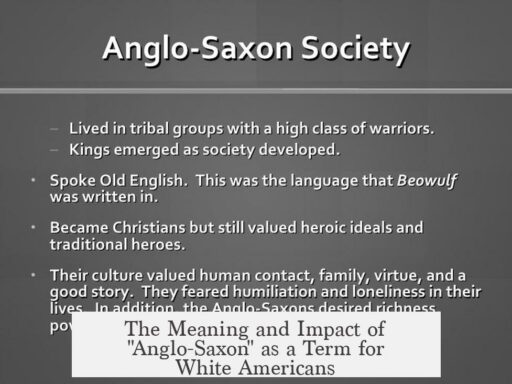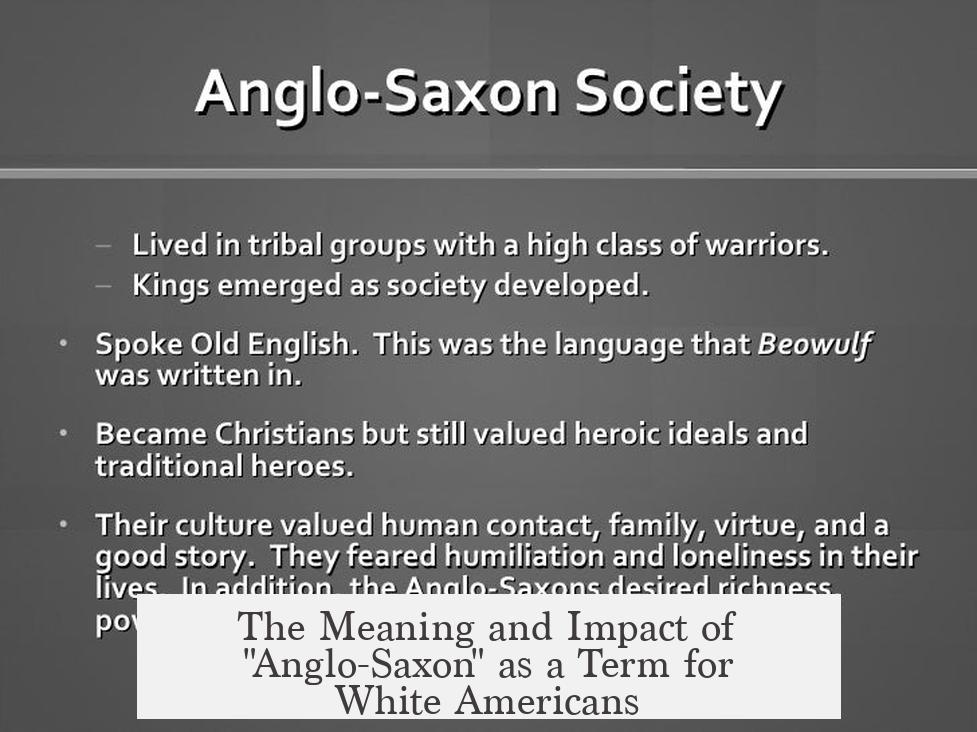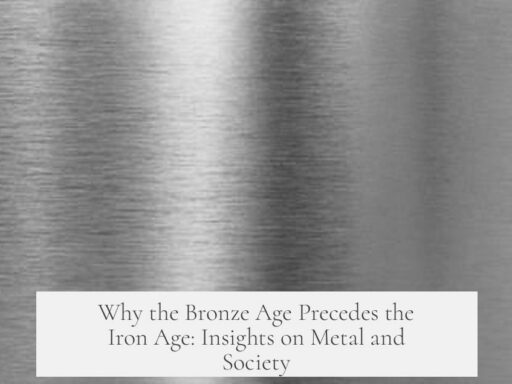Americans use the term “Anglo-Saxon” to describe a specific group of white people, primarily those with English Protestant ancestry from old American families, often called WASPs (White Anglo-Saxon Protestants). This term highlights a subset distinguished by cultural heritage and societal influence rather than applying broadly to all white individuals.
The label “Anglo-Saxon” in the United States refers specifically to descendants of early English settlers who shaped American social and political institutions. These families historically held significant power and influence in society. The term contrasts this group with later immigrant populations such as Irish, Italian, or Jewish communities, who often had different religious and cultural backgrounds and were initially less integrated into the upper echelons of American society.
Usage of “Anglo-Saxon” extends beyond America. The term appears in other English-speaking countries like Australia and Canada, where it is used to denote similar demographic groups, often identified as “White Anglo-Saxon Protestants.” In Europe, the term sometimes broadly refers to English-speaking populations including Americans, Australians, and New Zealanders, emphasizing shared cultural traits.
From a sociological perspective, the term is increasingly seen as outdated. Modern descriptors such as “European-American” are more commonly used to reflect the diverse origins of white Americans. “Anglo-Saxon” now often appears in literary or geopolitical contexts, likened to symbolic references like “The Hun” for Germany or “The Great Bear” for Russia. It serves more as a cultural or historical label rather than an accurate demographic description.
There is also confusion around racial terms like “Caucasian,” which is often used synonymously with white in American English, despite its anatomical and geographic inaccuracies. Many critique this usage as imprecise, preferring clearer terms like “white” or more specific ethnic identifiers.
- “Anglo-Saxon” typically refers to old English Protestant American families with social influence.
- The term is used in other English-speaking countries and Europe to denote English-speaking cultural groups.
- Sociologists consider the term outdated and symbolic rather than precise.
- There is debate over racial terminology, with calls for clearer terms than “Caucasian.”
Why Do Americans Use the Term “Anglo-Saxon” for White People?
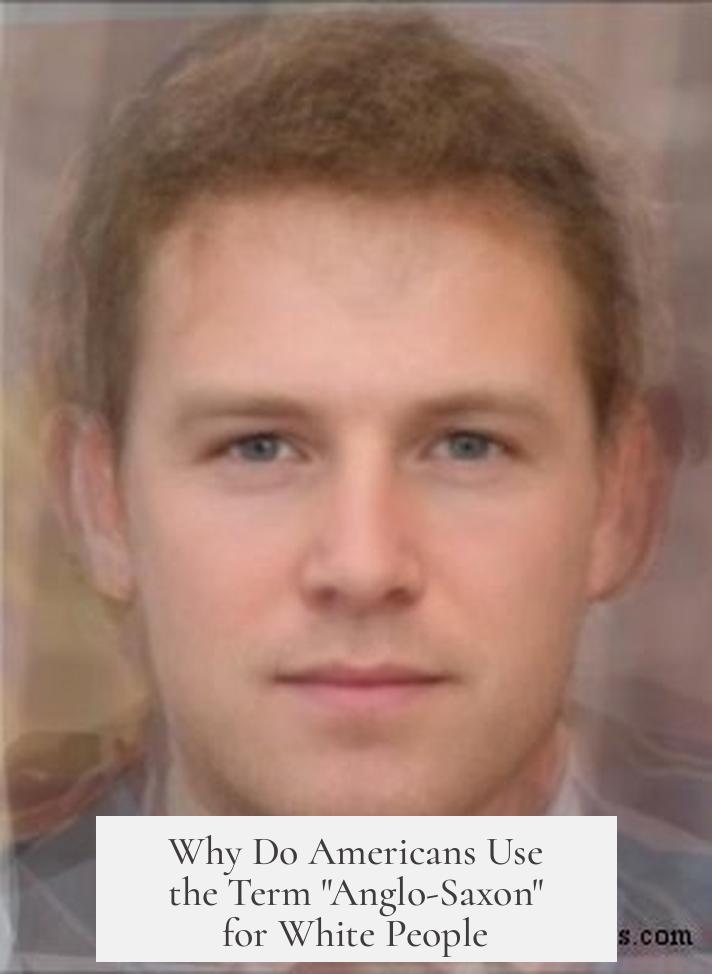
In America, the term “Anglo-Saxon” does not simply mean any white person. It specifically refers to white people with English Protestant roots, belonging to historically powerful families often called WASPs (White Anglo-Saxon Protestants). This phrase is a distinct social marker, not a broad racial label.
Now, hold on a moment—what about all the other white people with Irish, Italian, or Jewish backgrounds? Why don’t they get to be “Anglo-Saxons,” too? Let’s dive deep into this cultural puzzle and unmask why the term sticks around.
Anglo-Saxon: More Than Skin Color
First, Anglo-Saxon isn’t just a catchall for white folks. It’s a name with serious ancestry implications tied to old American elite families. When someone hears “Anglo-Saxon” or “WASP,” they think of those families with deep roots in English Protestant traditions. These families often hold significant social, political, and economic influence in the U.S.
Meanwhile, immigrants from countries like Italy, Ireland, or Jewish communities don’t fit this pedigree. Despite sharing whiteness, their cultural and religious backgrounds differ markedly. So, class and culture intertwine here, making Anglo-Saxon as much about social standing as about ethnicity. Think of it as a VIP club, exclusive by birth and belief.
It’s Not Just an American Thing
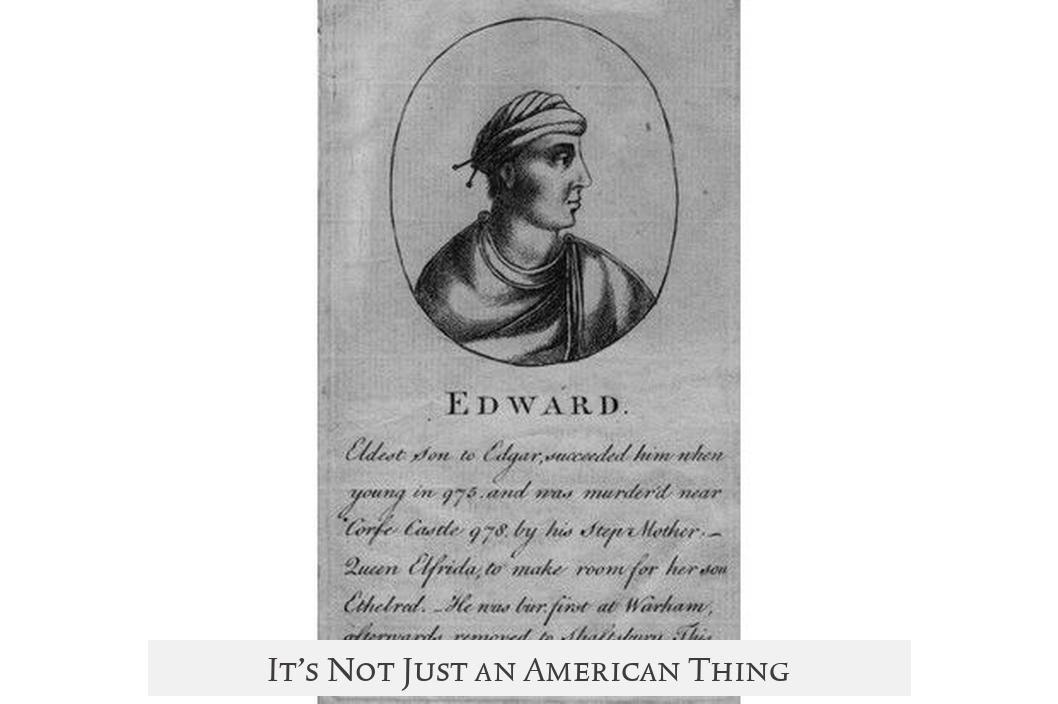
Here’s a kicker — Americans aren’t the only ones throwing around “Anglo-Saxon.” Step outside the U.S., and you’ll find Australia and Canada using the term too. Their dictionaries and language guides acknowledge “White Anglo-Saxon Protestant” as a known category.
In Europe, the term has even broader baggage. Europeans often refer to English-speaking countries, especially England and the U.S., as “Anglo-Saxons.” This usage extends sometimes to Australians, New Zealanders, and even the Irish, linking them through language and culture rather than strict bloodlines.
Why? Because “Anglo-Saxon” here symbolizes membership in the “Anglosphere,” a group sharing common language, legal systems, and cultural traits. It’s part cultural descriptor, part geopolitical shorthand that hints at shared histories and alliances.
Outdated? Maybe. Colorful? Definitely.
From a sociology standpoint, the term is somewhat outdated. Today, more neutral terms like “European-American” or just “white” tend to be preferred in scholarly circles. Still, “Anglo-Saxon” pops up in a poetic or proverbial sense.
Think of it as a nickname turned symbol. England is *The Anglo-Saxon,* just like Germany was *The Hun* or the Ottoman Empire was *The Turk.* Russia got to be *The Great Bear.* These labels evoke images and histories that go beyond dry data.
This emblematic use is why you might spot the term in political commentary or cultural critiques. It’s a colorful shorthand, but not the go-to in everyday sociology anymore.
What About Racial Terms Like ‘Caucasian’? Why the Confusion?
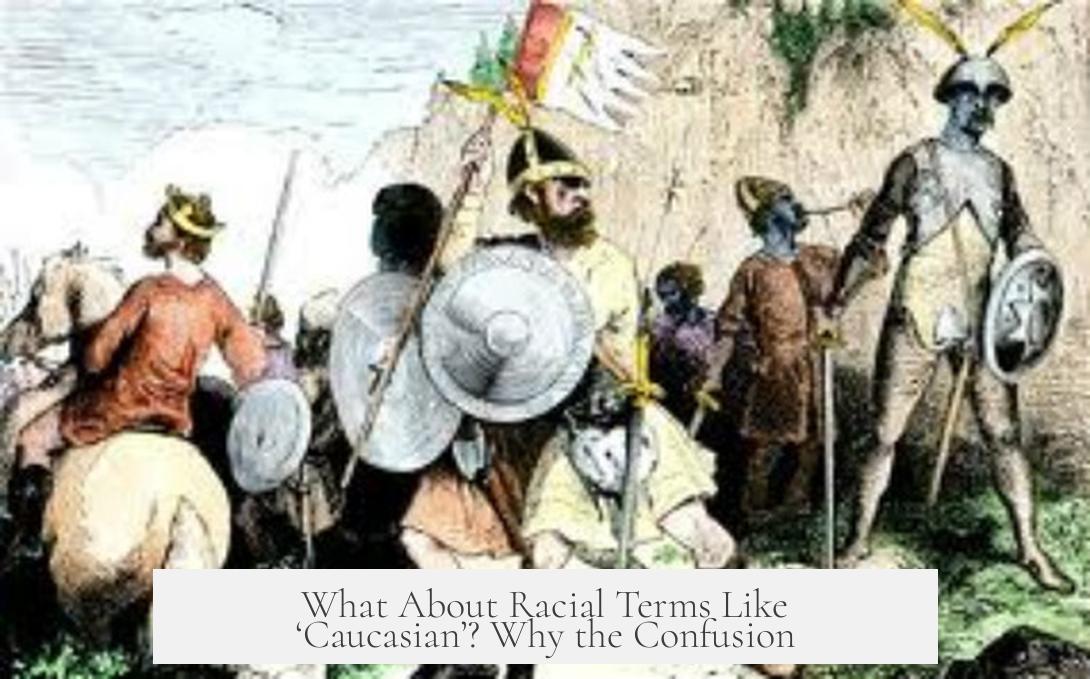
Here’s a fun twist. Some Americans use “Caucasian” when describing white people. But what does that even mean? If you’re white but not from the Caucasus region, calling yourself Caucasian sounds odd.
This confusion reveals complexity in American racial terminology. The choice of words like “Anglo-Saxon” or “Caucasian” often reflects historical baggage and ongoing debates. For many, “white” is clearer and simpler but lacks the cultural or class nuance of “Anglo-Saxon.”
So, when Americans use Anglo-Saxon, they don’t just mean skin color—they’re signaling something far deeper, tied to ancestry, religion, and socio-economic background.
Why Does It Matter?
Understanding the term’s layers helps in decoding social dynamics and historical power structures in the U.S.
- Social Influence: Anglo-Saxon families historically held disproportionate control over politics, finance, and culture. Recognizing this helps explain the term’s continued presence.
- Ethnic Identity: The term distinguishes one group within the broader white community, highlighting diversity even within seeming homogeneity.
- Cultural Connections: It reminds us how language and tradition form bridges across countries like the U.S., UK, Canada, and Australia.
How Should We Use This Term Today?
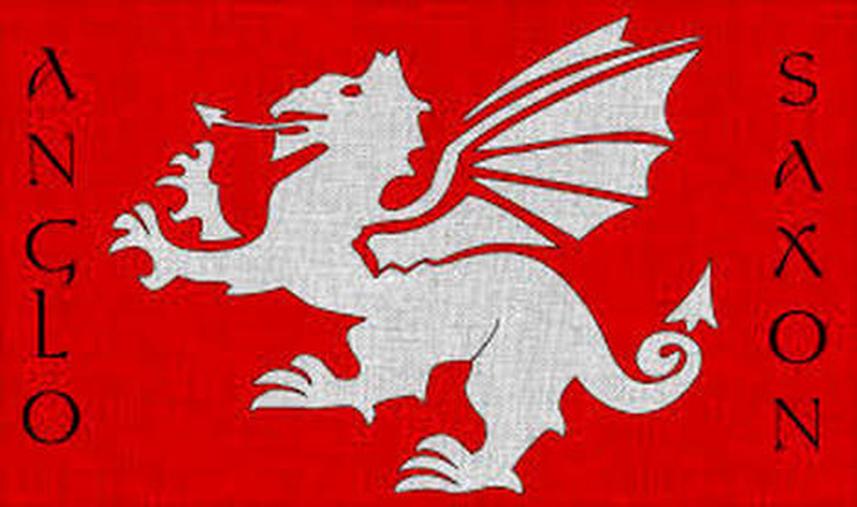
If you’re wondering whether to call someone Anglo-Saxon, consider the context. Is the focus on ancestry and socio-political heritage? Are you referencing historical elites or cultural traditions? If yes, “Anglo-Saxon” works. If you mean simply white or European descent broadly, other terms serve better.
For writers, historians, or anyone curious, clarity helps. Specify if you mean religious background, cultural influence, or ethnicity. This avoids confusion and respects the term’s rich, complex roots.
Wrapping Up
Why do Americans use “Anglo-Saxon” for white people? Because it’s not merely about skin color—it’s a historic tag for a specific, influential group. It taps into old English Protestant roots, upper-class standing, and cultural legacy. It also fits into a global pattern of using “Anglo-Saxon” to describe shared cultural identities among English-speaking countries.
So next time you hear “Anglo-Saxon,” remember: it’s a loaded term, less about race and more about heritage, religion, and social influence. And like all good labels, it tells a story—one that weaves through centuries, continents, and countless family dinners. Now, isn’t that a conversation starter?
